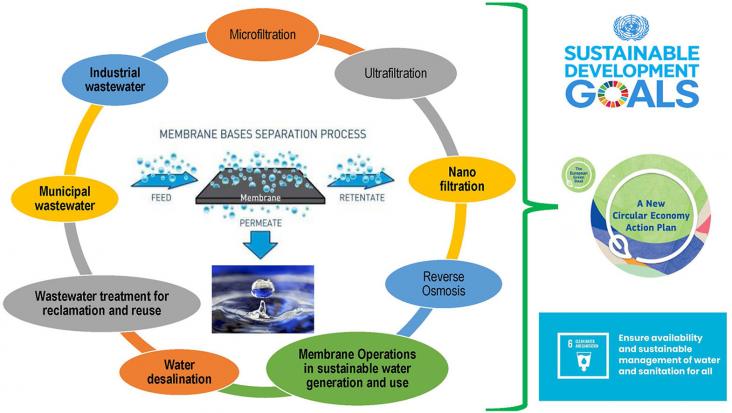Over 43 million U.S. residents rely on private unregulated wells for their drinking water, raising public health concerns, particularly in regions like northern New England where widespread groundwater arsenic contamination is now recognized. Children are particularly vulnerable to adverse health effects from arsenic exposure.
Nuclear desalination is an important non-electric application of nuclear power and heat, having strong interlinkages and alignment with sustainable development, climate change management (both mitigation and adaptation), and water security.
An examination of the challenges involved in water demand forecasting, with a particular focus on the impact of COVID-19 on the performance of various machine learning models designed for this purpose.

Clean water resources are crucial for societies in order to maintain safety as well as social, ecological and economic progress. As the population grows, agricultural, domestic and industrial activities produce large amounts of wastewaters that can be treated and reused in variety of purposes considering circular economy philosophy. This review presents the challenges and future prospects of wastewater treatment using membrane technologies and is related to SDG 6: Clean water and sanitation.
This study provides new insight into the evolution of influx assessment employing concurrent sampling in large-sized rivers.
We observe the link between Artificial Intelligence (AI) and Sustainable Development Goals (SDGs). We use automated methodologies to find insights and overlaps between AI and the SDGs. AI-Ethics frameworks need to give more attention to Society and Environment areas. Inclusive action is needed to balance the efforts for solving SDGs by using AI.SDGs 13, 14, and 15 (all related to the Environment area) are not sufficiently addressed.
The article investigates the role of environmental pollutants, especially endocrine disrupting chemical, and their negative effect on fertility.

This is an Opinion article by two highly accomplished synthetic biologists that explains how synthetic biology tools can benefit oceans.
Indigenous agricultural knowledge is observed as an important national human capital to improve crop productivity and enhance sustainable agricultural development.
This article supports SDG's 3, 6, and 11 by illustrating the reduction of pollutants using various microbial techniques. Strategy and recommendations are summarized, along with the future prospects.
